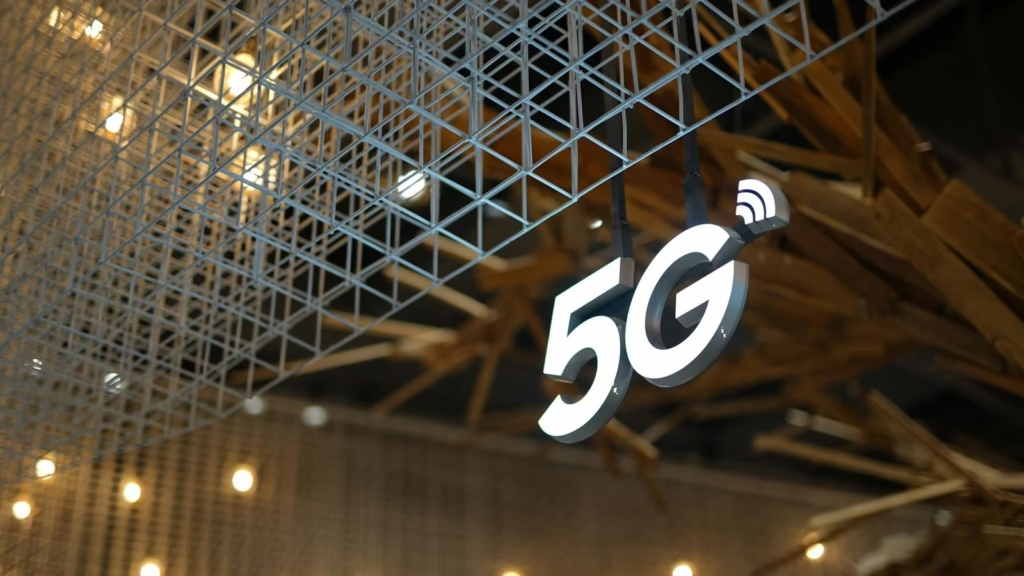The UAE is taking a giant leap forward in digital connectivity with the nationwide rollout of its advanced 5G network. This ambitious move aims to bring lightning-fast internet speeds to residents, businesses, and industries across the country, solidifying the UAE’s position as a leader in technological innovation.
Why 5G Matters
5G technology is the next generation of mobile connectivity. Compared to 4G, it offers significantly faster download and upload speeds, reduced latency (response time), and the capacity to connect a massive number of devices at once. This means smoother video calls, faster streaming, and more reliable internet access even in crowded areas.
Industries such as healthcare, transportation, and manufacturing will benefit greatly from 5G. It enables innovations like autonomous vehicles, remote medical procedures, and advanced robotics. Smart cities will become smarter with seamless connections between sensors and devices.

Moreover, with 5G, online gaming experiences will reach new heights with virtually no lag. Augmented reality (AR) and virtual reality (VR) applications will become more immersive, transforming sectors like entertainment, education, and even remote work.
UAE’s Nationwide Rollout

The UAE has already made considerable progress in deploying 5G technology. Leading telecom providers like Etisalat and du have been actively expanding their 5G infrastructure. With towers and base stations strategically placed across urban centers and rural areas, the goal is to ensure all communities have access to high-speed internet.
The government has collaborated with these providers to speed up the process, ensuring that both residential users and businesses benefit from this enhanced connectivity. By the end of the rollout, users can expect coverage that spans major highways, remote regions, and urban hubs.
Boost for Businesses and Innovation
Businesses in the UAE stand to gain significantly from the 5G expansion. With ultra-reliable and low-latency connections, companies can embrace emerging technologies like augmented reality (AR), virtual reality (VR), and the Internet of Things (IoT).
Startups and tech innovators will find new opportunities to develop applications and services that leverage 5G’s capabilities. From immersive gaming experiences to remote operations for factories, the possibilities are vast.
Additionally, the enhanced network will support the growth of e-commerce, fintech, and telemedicine platforms, offering more reliable digital experiences to consumers. Cloud computing will also see a significant boost, enabling companies to store, manage, and analyze vast amounts of data more efficiently.
The tourism and hospitality industries will benefit from enhanced virtual experiences. Virtual tours, AR-driven navigation apps, and seamless connectivity for international travelers will elevate the overall visitor experience.
A Step Towards Smart Cities
The UAE has long had ambitions of building smart cities, and 5G is a crucial piece of that puzzle. With faster data transmission and low latency, connected devices such as traffic sensors, surveillance cameras, and smart grids will function more efficiently.
This means improved traffic management, better energy conservation, and enhanced public safety. Residents will experience a higher quality of life with smart home systems, connected transportation options, and innovative urban planning.
For instance, AI-powered traffic monitoring systems can analyze real-time data to manage congestion, predict accidents, and reduce pollution. Waste management can also become smarter through sensors that detect full bins and optimize collection routes.
Environmental Impact and Sustainability
5G networks are designed to be more energy-efficient than their predecessors. While the initial rollout may require substantial infrastructure, the long-term benefits include reduced energy consumption per gigabyte of data transferred.
Furthermore, as smart cities become more connected, energy usage can be optimized through data analysis and automation. This supports the UAE’s sustainability goals and aligns with its vision for a greener future.
By leveraging 5G, businesses can also reduce their carbon footprint. Remote work, virtual meetings, and enhanced telecommunication will minimize the need for travel, resulting in lower emissions.
Challenges and Solutions
Despite the promising benefits, the 5G rollout comes with its challenges. Establishing the necessary infrastructure requires significant investment, and ensuring network security remains a top priority.
The UAE government is actively addressing these concerns by encouraging public-private partnerships and investing in cybersecurity measures. Advanced encryption technologies and AI-powered security solutions will help protect sensitive data and ensure a secure network environment.
Moreover, public awareness and digital literacy programs are being introduced to educate users on how to make the most of 5G services while remaining secure online.
Looking Ahead
The UAE’s 5G expansion is just the beginning. The nation is already exploring advancements in 6G technology, which promises even faster speeds and more groundbreaking applications. However, for now, the focus remains on maximizing the potential of 5G and ensuring it reaches every corner of the country.
For residents, this means enjoying high-speed connectivity at home, work, and on the go. For businesses, it means seizing new opportunities in a rapidly evolving digital economy.
As the network continues to grow, the UAE is setting a global example of how technological innovation can drive progress and enhance the lives of its people. Superfast internet is no longer a luxury; it’s the new standard in the UAE.
Also read: Why Abu Dhabi’s Restored Heritage Sites Are a Must-Visit for Art Lovers













